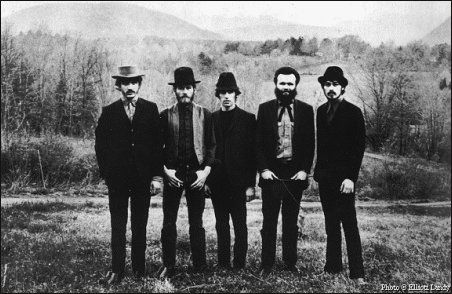So what exactly are the digital humanities?
- Gabrielle Bossy

- Sep 11, 2013
- 3 min read

After two hours of grappling with this very question in my Digital History course, and thinking about it since, I have finally begun to form some answers as to what the digital humanities are and what it means for the field of history. No doubt as this course progresses my opinions will be challenged, changed and expanded.
To me, digital humanities is the transfer of all fields (whether it be history or health sciences) into technological mediums and stages. More simply put- it’s taking the information discovered in said fields and digitizing it. This can be done in a number of different ways from creating a virtual tour of a historic site online to snapping a photo of your grandma’s old clothes on your iPhone and uploading it to your Instagram account.
So then, what does it mean for the field of history? Of course the negatives come to mind: lack of quality control, lack of privacy and the fear that jobs as ‘professional historians’ will be rendered obsolete as anyone and their mother is now able to write their opinion on history and make it available to millions of people with one click of a mouse.
While these points seem valid to me it’s not that simple. Not only are there positive aspects of digital humanities, but some of the negative aspects, if embraced have potential to be beneficial. Not sold? Let me give you an example. We have this idea that digitization has created a massive problem of quality control as sites like Wikipedia, where articles have not been peer reviewed, are expanding. Is this really a digital world problem? Do we not have issues of quality control outside of the digital sphere? Magazines and newspapers like the National Enquirer aren’t scholarly sources of information. So really, this problem is something we’ve been dealing with long before Wikipedia. As historians we’re trained to see the differences so why not embrace the possibilities? Moreover, we can use the digitization of history to provide more databases like JSTOR for scholarly sources to be available. Additionally, as future public historians part of our job is to be aware of public opinions on history so that we can shape it. To me, the internet provides more ways to do just that!
Still, that resentment towards the amateur historian and his or her potential for growth in the digital age remains. This is in part, as noted by one of my peers in the same program (you can read his blog here:http://odgjones.wordpress.com/ ), because we as Masters students have invested a great deal of time and money to academia and therefore feel that the general public does not possess the necessary critical analytical skills to write about history the way we do.
On the flip side however, much of the historical work that amateur historians do would be left undone in their absence and left inaccessible without digitization. This is the case for the museum I worked at during the last three summers. A single amateur historian has done extensive research on the site’s founding family using ancestry.com and other helpful websites and has made the research widely accessible- a project no one else has expressed a desire to work on.
In conclusion, digital history has a number of drawbacks one can dwell on. However, by embracing it I believe we can work to minimize these drawbacks and create exciting new ways to bring history to life for the general public.



Comments